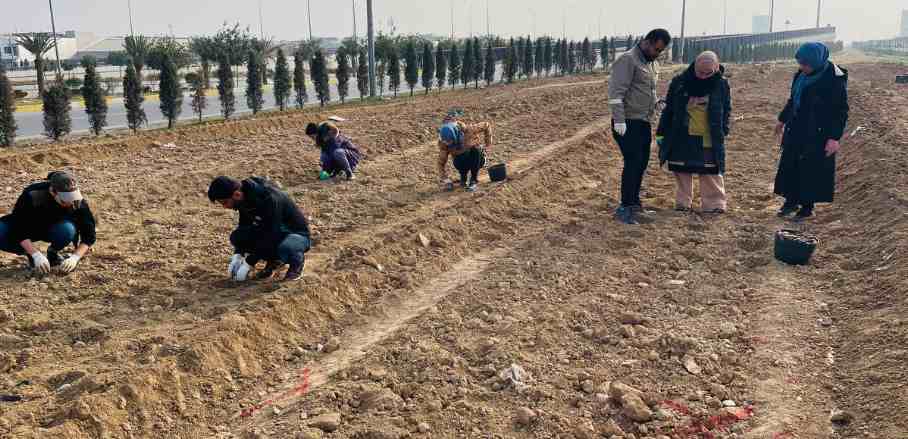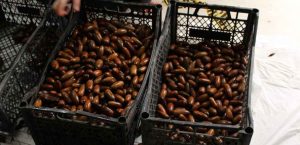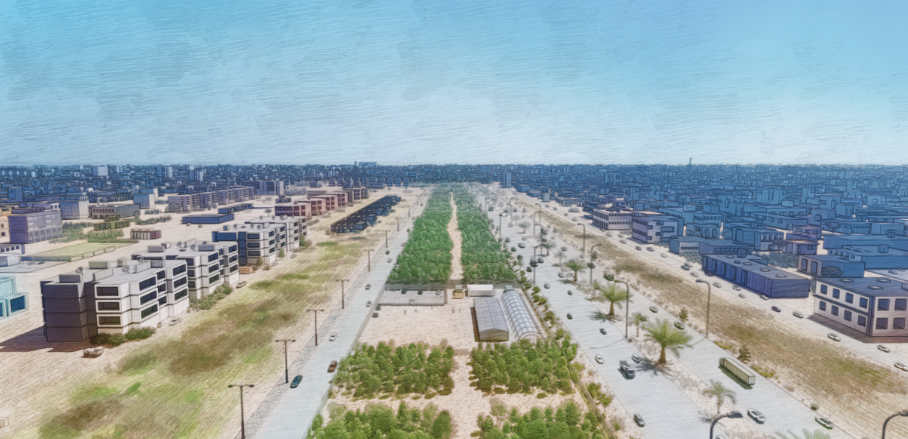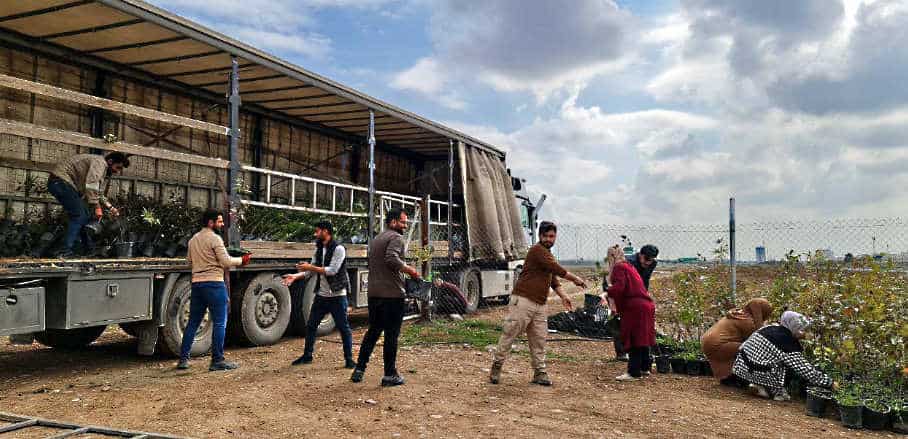Growing a Greener City: Erbil’s Roadmap to Climate Adaptation
In response to rapid urbanisation and climate change impacts in Erbil, Iraq, Sinam Hawro Yakoob, highlights how a community-driven initiative has set an ambitious goal of planting one million indigenous oak trees to enhance the city’s environment and capacity to adapt to climate change.
Erbil, the capital city of the Kurdistan Region in northern Iraq, has undergone astonishing urban growth and expansion in the past two decades. The city’s population has more than doubled, experiencing a significant increase from approximately 600,000 in 2000 to over 1,4 million today. This rapid growth has demanded extensive infrastructure development, including constructing multiple highways circling in and around the city. Urban planning initiatives have been implemented to manage this growth effectively, while economic prosperity has attracted investments in sectors like oil and gas, construction, and tourism.
How the City’s Expansion Intensified Erbil’s Climate Challenges
Erbil, a city inherently vulnerable to climate change impacts, has faced new challenges because of its recent developments. Even before its expansion, Erbil grappled with scorching summer temperatures reaching up to 50 degrees Celsius, leading to frequent heatwaves, drought, and soil desertification. The region’s arid climate and limited water resources have perpetuated water scarcity, resulting in sparse vegetation coverage. In the absence of sufficient green spaces, essential for air filtration and pollutant removal, the city has established a baseline of high air pollution and poor air quality.

To prevent soil desertification and mitigate the urban heat island effect, volunteers are planting oaks trees © MillionOak
Erbil’s rapid urbanisation, characterised by extensive construction and infrastructure expansion, has further exacerbated these climate issues. The proliferation of heat-absorbing surfaces intensified the urban heat island effect exponentially, causing higher temperatures within the city compared to the surrounding rural areas. Concurrently, rising traffic congestion further elevated air pollution levels, disrupting the environmental equilibrium in Erbil.
Realising the Importance of Sustainable Urban Planning Practices: Erbil 2030 Strategy
Recognising the urgent need for sustainable urban planning practices, Erbil’s government has taken decisive action. The comprehensive Erbil 2030 strategy, designed to guide its urban development, addresses various challenges associated with expeditious growth. Aside from preserving Erbil’s rich cultural heritage and enhancing the quality of life of its residents, the master plan aims to ensure sustainability that addresses the current climate by amplifying the city’s urban climate resilience. Thus, the concept of a green belt, more specifically a ring of green spaces and natural areas surrounding the core of the city, has been incorporated into the master plan. This ingenious solution serves multiple purposes, including ecological preservation, recreational opportunities, and mitigating the urban heat island effect. The successful implementation of these ambitious goals calls for a multifaceted strategy that encompasses various aspects of integrated urban planning. From addressing the interconnected factors of raising awareness to conserving biodiversity, while simultaneously fostering community engagement, Erbil can strategically and intelligently pursue its sustainable development goals.

Oak tree seeds to be planted in Erbil © MillionOaks
In the Kurdistan Region and the Erbil Governorate, the climate action organisation Hasar partnered with the Rwanga Foundation, an NGO dedicated to promoting education and providing humanitarian aid in 2021 to accomplish just that. Recognizing the severity of having lost 20 million acres of natural oak forests in the past two decades due to urban expansion and climate change, this partnership aims to realize Erbil’s master plan by engaging communities and prominent corporations. Thus, with the support of Erbil’s Governor Omed Koshnaw and the city’s Ministry of Municipalities and Tourism the two organisations founded the MillionOaks project.
Indigenous Trees to Restore Erbil’s Environmental Balance
The project is the first of its kind in Iraq and holds great potential, not only for Erbil but as a role model for other cities in the region, facing similar climates and overall challenges. Characterised by the captivating ambition of planting 1 million native oak trees in Erbil, MillionOaks has made astonishing strides since the beginning of its implementation phase in January 2022.
Recognising the pivotal role of afforestation in mitigating the urban heat island effect, characterised by heightened temperatures in urban areas due to inadequate vegetation, the Million Oaks Project has strategically planted 315,000 oak trees within Erbil’s urban landscape to provide cooling and shading within the city. Hasar’s founder, Hawkar Ali Abdulhaq states: “We’ve cultivated an urban oasis equivalent to 65 football fields right in the heart of Erbil, a city grappling with rapid expansion and resultant climate challenges. As we gear up to plant an additional 700,000 trees by December 2023, we remain steadfast in our commitment to advancing Erbil’s climate resilience and championing a sustainable urban future.”

Rendering of 120 meter street in Erbil, displaying what the area will look like once the planted trees have grown ©MillionOaks
With seven years remaining to achieve the “Erbil 2030 Strategy”, MillionOaks, its pilot project, is already making a significant impact. The project has improved Erbil’s air quality by harnessing the natural capabilities of trees to capture and filter air pollutants. Additionally, it has not only conserved biodiversity but also fostered the establishment of new habitats for various species, resulting in an overall improvement in the city’s ecosystem resilience.
The collaboration between Erbil’s government and the organisations involved in the MillionOaks Project highlights the significant impact of community engagement. The project motivates residents to actively contribute to creating a more resilient future by raising awareness and actively involving volunteers in planting trees. This collaborative effort not only enhances Erbil’s quality of life but also ensures a sustainable legacy for future generations to benefit from.
